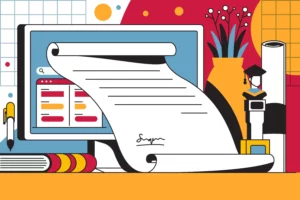Contract renewal negotiations are key to keeping and strengthening business relationships. These discussions not only affect the terms of an ongoing agreement but also set the tone for future interactions between parties.
Think of a skilled negotiator as a conductor leading a complex orchestra. Every term and condition needs to work together smoothly to create a successful renewal. Just like in music, where timing, tone, and rhythm are important, the same careful approach is needed for negotiating contract renewals.
This blog covers the essential parts of contract renewal negotiations. We will look at how to prepare, key strategies to use, and common challenges you might face. We will also explore how AI can improve negotiation results and offer practical tips for getting the best terms.
Understanding Contract Renewal Negotiation
Understanding Contract Renewal NegotiationContract renewal negotiation involves revisiting the terms of an existing contract as it approaches its end date. Unlike creating a new contract, renewal talks require a good understanding of the current relationship between the parties. It also involves reviewing how the contract has worked so far.
The main goal is to make sure the renewed contract still meets the needs of both parties. It should also address any changes that have happened since the original agreement.
The Importance of Renewal Negotiation
Renewal negotiations are a key chance to review contract terms. This ensures they still match the changing goals and strategies of everyone involved. For businesses, this could mean negotiating better prices, extending the contract length, or updating clauses to reflect new regulations or market changes.
Legal professionals are essential in these negotiations. They make sure any changes are legally valid and that the contract continues to protect their client’s interests.
Differences Between New Contracts and Renewals
Both new contracts and renewals need negotiation, but they are quite different. In new contract negotiations, parties often start from scratch. All terms and conditions are open for discussion.
In contrast, renewal negotiations are based on an existing contract. The focus is on updating specific terms rather than renegotiating the entire agreement. This difference means you need a different approach. You must balance keeping what works with making necessary updates and improvements.
Related Article: Contract Negotiation: Proven Strategies for Collaboration
Key Steps in the Renewal Process

Renewing a contract takes a careful approach. You need to revisit and possibly revise the terms of the existing agreement. Here are the key steps to follow for a successful contract renewal negotiation:
Identifying Renewal Dates and Deadlines
The first and most important step in renewing a contract is finding out the renewal dates and deadlines. Missing these deadlines can lead to automatic renewal under the current terms. This could mean staying in a deal with less favorable conditions for another term.
Legal professionals need to keep a close eye on these contract dates to have enough time to prepare for negotiations. Contract management software can help by tracking these important deadlines and sending timely reminders to start the renewal process.
Gathering Necessary Information
Effective negotiation starts with understanding how the contract has performed and any problems that have come up. Collect data on how well the contract has been fulfilled. Look at things like service or product delivery, compliance with obligations, and any disputes or breaches.
Also, gather market data and compare it with similar contracts. This helps you see if the current terms are still competitive. This information shows where changes might be needed and helps shape your negotiation strategy.
Defining Contract Renewal Objectives
Before starting negotiations, set clear goals for the renewal. Make sure these goals match the overall aims of the organization or client. Consider any changes in their strategy.
Whether you want better pricing, a longer contract, or changes to specific clauses, having clear objectives will help guide the negotiation. It keeps discussions focused on achieving these goals.
Related Article: 7 Expert Tips for Easy Contract Negotiation
How to Prepare for Renewal Negotiations

Preparation is essential for successful contract renewal negotiations. A negotiator who is well-prepared can handle challenges more effectively. They are also better able to seize opportunities.
Evaluating Current Contract Performance
One key part of preparing for contract renewal is reviewing how well the current contract has worked. You should look at every aspect, including the quality of the services or products provided.
Check the timeliness of delivery and note any issues or disputes that have occurred. This review helps identify what has worked well and what needs to be improved. It also provides a solid foundation for negotiation discussions.
Understanding the Other Party’s Position
In any negotiation, it’s important to understand the other party’s position and priorities. This means researching their current business situation and financial health. You should also consider any outside factors that might affect their views.
By anticipating their needs and concerns, legal professionals can better shape their arguments. They can also suggest solutions that meet the interests of both sides. This approach increases the chances of reaching a deal that benefits everyone.
Preparing for Negotiation Discussions
To prepare effectively for negotiation discussions, start by developing a clear strategy. Outline what you want to achieve, key points to discuss, and possible concessions you might offer. Anticipate objections from the other party and prepare counterarguments or alternative solutions.
Consider the other party’s negotiation style and adjust your approach. For example, if they prefer a collaborative style, focus on building common ground and finding win-win solutions. This approach can be more effective in reaching a successful agreement.
Related Article: 5 Situations When Negotiation Isn’t Advisable
The Role of Pricing in Contract Renewal

Pricing is often a tough part of contract renewal negotiations. Both parties want a price that matches the value of the services or products. At the same time, they need to stay competitive in the market.
Pricing Strategies for Renewal Negotiations
When discussing pricing, it’s important to know the current market rates for similar contracts. This helps in negotiating fair and competitive pricing.
Also, think about factors like inflation, changes in supply chain costs, and shifts in demand that might have happened since the original contract was signed. By considering these factors, legal professionals can push for pricing adjustments that match the true value of the contract.
How to Negotiate Favorable Pricing Terms?
Negotiating good pricing terms involves preparation, flexibility, and strategic thinking. Start by looking at different pricing models. These might include fixed-price, cost-plus, or performance-based pricing. Each model has its own benefits, so find the one that works best for both sides.
Consider suggesting tiered pricing or volume discounts as incentives for renewing the contract. This can help both parties agree on better terms. Focus on the overall value of the contract, not just the cost, to reach an agreement that works well for everyone.
Avoiding Common Pricing Pitfalls
Pricing negotiations can be challenging, especially when each party has different views on what is a fair price. Common mistakes include not accounting for inflation, ignoring changes in market conditions, and missing hidden costs that might come up during the contract term.
To avoid these issues, do thorough market research and consider all relevant factors. Have open and clear discussions with the other party. Legal professionals should also make sure that the agreed pricing terms are clearly written in the contract to prevent future disputes.
Related Article: 10 Tips for Contract Negotiation : Strategies Toward Success
Leveraging AI in Renewal Negotiations

Artificial intelligence (AI) is playing a bigger role in contract renewal negotiations. It provides tools and insights that make the process better. These advancements can lead to improved outcomes. AI helps streamline the negotiations and offers valuable support throughout the process.
The Impact of AI on Contract Negotiation
AI can change how contract negotiations work by handling routine tasks, analyzing large amounts of data, and offering predictions. For example, AI tools can quickly spot important terms, check if contracts meet legal standards, and highlight possible risks. This lets legal professionals focus on more important parts of the negotiation, like coming up with creative solutions or tackling complex problems.
AI also helps by finding patterns in past negotiations. These insights can guide current negotiation strategies.
How AI Can Optimize the Renewal Process
AI can make the renewal process smoother by automating tasks like reviewing contracts, comparing them, and extracting data. This speeds up the process and lowers the chance of mistakes or missed details.
AI can also find areas for improvement in contracts. It might suggest better terms or point out parts of the contract that may not be as effective anymore.
By using AI, legal professionals can work more efficiently and effectively in contract renewal negotiations. This leads to better results for their clients.
Related Article: Contract Expiration Date: Top Strategies for Contract Expiry
Common Challenges in Contract Negotiation

Contract negotiations, especially renewals, can come with many challenges. These challenges need to be managed carefully to achieve a successful result.
Dealing with Stalemates in Negotiations
Stalemates happen when both sides can’t or won’t agree on important issues, leading to a deadlock. To resolve this, it’s crucial to look for alternative solutions or creative compromises. This might mean going over each party’s priorities again, finding common interests, or bringing in a neutral third party to help mediate.
Legal professionals should stay patient and persistent. Resolving a stalemate can take time and may require several rounds of negotiation.
Overcoming Cultural Differences
Cultural differences can have a big impact on negotiations, especially in international contracts. These differences might show up in how people communicate, make decisions, and handle conflicts.
To manage these challenges, it’s important to understand and respect the other party’s values and practices. This can help avoid misunderstandings and create a more cooperative negotiation atmosphere. Legal professionals should also be ready to adjust their approach to fit cultural differences. This ensures that everyone feels respected and valued throughout the negotiation process.
Mitigating Unnecessary Risks
Managing risk is an important part of contract negotiation. It means spotting and dealing with possible problems that could come up during the contract period. When it comes to renewing a contract, this includes looking at the contract’s risk profile again and updating clauses like indemnification, liability, and warranties.
Legal professionals need to work closely with their clients to find any new risks that have come up since the original contract was signed. They should suggest changes to address these risks. This proactive approach helps avoid disputes and makes sure the contract continues to protect everyone’s interests.
Related Article: Contract End Date: When Does Your Contract End?
Best Practices for Achieving Successful Outcomes

Asking the right questions is key to successful contract renewal negotiations. These questions help clear up what both sides need and expect. They also reveal any potential problems and guide the conversation toward solutions that work for everyone.
By asking the right questions, you ensure that all concerns are addressed and that both parties reach an agreement that benefits them. This approach helps make negotiations smoother and more effective.
Key Questions to Ask During Negotiations
When negotiating a contract renewal, consider asking these key questions:
- What has worked well in the current contract, and what needs to be improved?
- Are there new rules or market changes that should be included in the contract?
- What are the priorities and concerns of the other party, and how can they be addressed?
- What are the most important terms for both sides and are they clearly defined in the contract?
- How can the contract be updated to better fit the current business environment?
These questions ensure that the negotiation process is thorough and that all important factors are covered.
How to Use Questions to Drive the Negotiation Process
Questions can be a powerful tool in guiding negotiations. Asking open-ended questions encourages the other party to share more about their needs, concerns, and priorities. This helps you understand their position better and find areas where compromise might be possible.
Targeted questions also keep the discussion focused on the main issues. This prevents the negotiation from getting sidetracked by less important matters.
Negotiating for the Best Possible Terms
To get the best terms in a contract renewal negotiation, you need preparation, strategy, and clear communication. Focus on the key parts of the contract. Be open to creative solutions. Stay collaborative. By doing so, legal professionals can help their clients secure favorable terms. This approach also helps build a positive and productive relationship with the other party.
Related Article: Contract Disputes: A Comprehensive Guide
Strategies for Renegotiation as a Negotiator
Contract renewals are great chances to make sure you’re getting the most value. Here’s how to approach renegotiation strategically:
Contract renewals offer a great chance to make sure you’re getting the best value. Here’s how to approach renegotiation strategically:
Preparation is Key
- Review the Current Contract: Look closely at the terms, pricing, and performance. Find areas where you can improve or ask for concessions.
- Track Your Usage: Check how much you’re actually using the services or products. Are you paying for features you don’t use?
- Do Market Research: Look at what competitors offer. Are there better deals available?
Building Leverage
- Show Your Value: Highlight how your business benefits the other party.
- Use Your Usage Data: Show that you’re a good customer by pointing out consistent use or meeting key metrics.
- Consider Other Options: Get quotes from competitors. This gives you leverage by showing you’re ready to explore other options.
Win-Win Negotiation
- Focus on Partnership: Approach the contract renewal discussion as a chance to strengthen your relationship.
- Be Clear on Your Goals: Identify the specific terms you want to renegotiate, like lower prices or more features.
- Be Ready to Compromise: Go in with a mindset of give and take. Know where you can concede to get better terms in other areas.
By preparing well, using your leverage wisely, and aiming for a win-win outcome, you can use contract renewals to secure a good deal.
Related Article: Contractual Liability: A Comprehensive Guide
When to Walk Away from a Contract Renewal

Walking away from a contract renewal can be difficult, but sometimes it’s the right choice. Here are some warning signs to look out for:
- Declining Value: Are you frustrated with the service or product? Have your needs changed, and the contract no longer fits? If you’re not getting what you paid for, it’s time to consider other options.
- Unreasonable Terms: The other party might offer worse terms during renewal talks. This could mean they don’t value your business or just want to make more profit. If the terms aren’t fair, don’t hesitate to walk away.
- Communication Breakdown: Is communication becoming difficult? Are they slow to respond or ignoring your concerns? A good working relationship is crucial. If communication starts to fail, it could lead to bigger problems down the line.
- Ethical Concerns: If the contract renewal forces you to compromise your ethics, walk away. This might involve unfair practices or neglecting environmental responsibilities. There are always better options that align with your values.
Remember, a contract renewal should benefit both sides. If you see any of these warning signs, don’t be afraid to look for other options.
Related Article: What is Contract Renewal? Ultimate Guide To Success
FAQs
1. What is contract renewal negotiation?
Contract renewal negotiation involves revisiting and updating the terms of an existing contract as it approaches its end date. The goal is to ensure that the renewed contract meets the current needs and objectives of both parties.
2. How is contract renewal different from negotiating a new contract?
Renewal negotiations focus on updating specific terms of an existing contract, while new contract negotiations typically start from scratch, with all terms open for discussion.
3. Why is preparation important for contract renewal negotiations?
Preparation is key because it involves evaluating the current contract’s performance, understanding the other party’s position, and setting clear objectives. This groundwork ensures a more effective and strategic negotiation process.
4. How can AI enhance the contract renewal process?
AI can streamline the renewal process by automating routine tasks, analyzing contract performance, and providing predictive insights, allowing legal professionals to focus on more complex aspects of negotiation.
5. When should you consider walking away from a contract renewal?
You should consider walking away if the renewed terms offer declining value, are unreasonable, if there’s a breakdown in communication, or if the renewal compromises your ethical standards.
Related Article: Best Contract Management Software: Top 10 CLM in 2024
Conclusion: Mastering Contract Renewal Negotiations
Contract renewal negotiation is a detailed and complex process. It requires a solid understanding of the existing contract, the current environment, and the strategic goals of both parties. By following a structured plan and preparing well, legal professionals can navigate renewal negotiations effectively and achieve favorable outcomes for their clients.
Whether it’s renegotiating pricing, updating key contract terms, or addressing cultural differences, this guide offers a strong foundation. By following these best practices and staying focused on securing the best possible terms, legal professionals can protect their client’s interests. They can also ensure that the renewed contract continues to benefit the organization.





